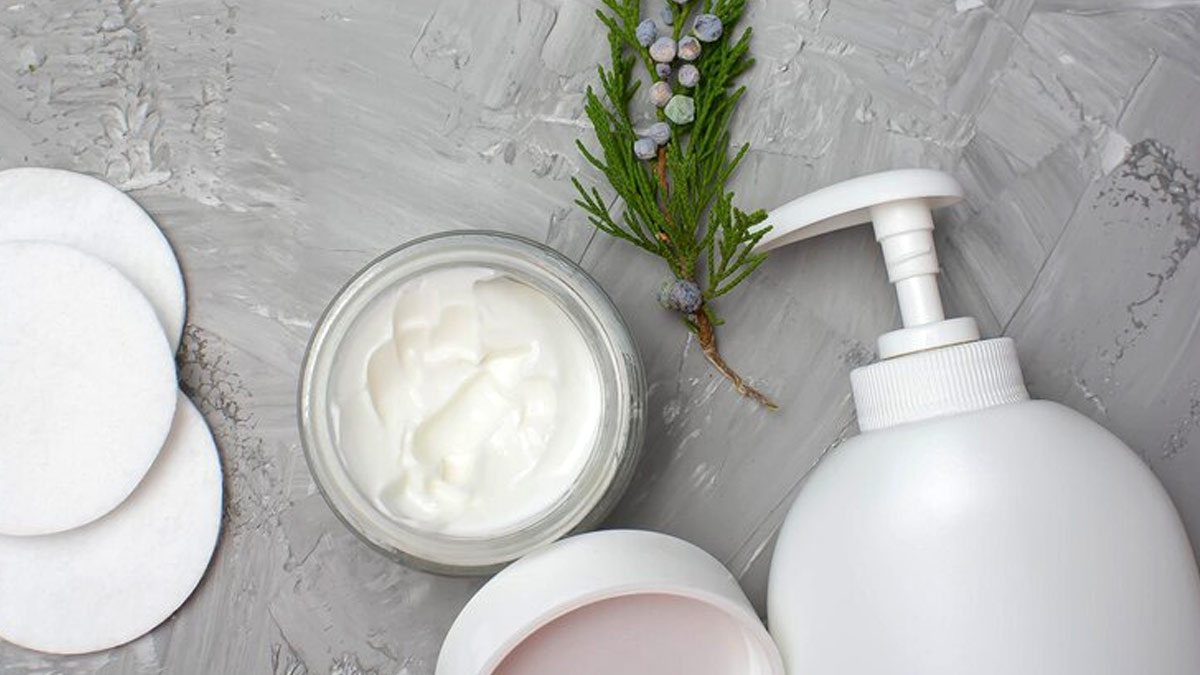
We're all familiar with the fact that moisturising after a face wash is an absolute must in skincare. But with the vast number of choices to pick from on store shelves, online shopping websites, and our go-to social media influencers' skincare routines, it becomes all too easy to be confused. The confusion is compounded further when choosing the base of the moisturiser, gel-based or cream-based? Though this option may not be so important to individuals with combination skin, oily skin types tend to suffer the most.
Table of Content:-
To have our doubts cleared, we contacted exclusively Dr Sanjeev Gulati, Dermatologist, Department of Dermatology, Sharda Hospital – Noida, who explained how oily skin types can make the right, informed decision.
Why Oily Skin Still Needs Moisturiser
The popular myth is that oily skin does not require moisturising. Dr Gulati explains, "Even oily skin can be dehydrated. When the skin is short of water, sebaceous glands get triggered to release more oil to make up for it, causing clogged pores, acne, and lackluster skin. Hydration is all about water balance, not oil."
Skipping moisturiser might provide short-term relief from oiliness, but ultimately leads to shine and breakouts in the long run. That's why selecting the appropriate base of moisturiser is essential.

Gel Moisturisers: Why It’s The Favourite for Oily Skin
Gel moisturisers are water-based, so they're light and airy. They're usually formulated with humectants such as hyaluronic acid and glycerin, which draw in water without weighing the skin down. Here’s how they're beneficial for oily skin:
- Non-greasy feel: Refreshing and dries into the skin rapidly.
- Fewer breakouts: Most gels are oil-free, non-comedogenic.
- Cooling sensation: Particularly helpful in warm, humid environments where oily skin is stickier.
- Matte look: Most gel products leave the skin supple without unwanted sheen.
Dr Gulati continues, "Patients with oily or acne skin tend to do best with gel moisturisers as they moisturise without clogging pores or worsening acne."
Cream Moisturisers: Do They Ever Work Oily Skin?
Cream moisturisers, however, are richer and tend to be oil-based. They provide a barrier, and this barrier helps to seal in moisture. Ideal for very dry, sensitive, or mature skin, but what about oily skin? It should not be the first option, but cream moisturisers can still work when:
- Seasonal dryness arrives: During colder months, even oily skin can become tight and flaky.
- Following treatments for acne: Acne drugs such as retinoids, salicylic acid, or benzoyl peroxide tend to dry out the skin, so a non-greasy cream becomes essential.
- Repair of the skin barrier is required: Light creams containing ceramides or niacinamide can reinforce the skin barrier without overloading it.
- The trick is to choose oil-free and non-comedogenic cream types. Mineral oils and heavy butters, however, are best avoided on oily skin.

Texture vs. Ingredients: Which Matters More?
Although texture is a large factor, Dr Gulati emphasises that ingredients are just as crucial. For oily skin, he suggests:
- Hydrating agents: Hyaluronic acid, glycerin, aloe vera.
- Soothing agents: Green tea, niacinamide, allantoin.
- Barrier-supporting agents: Ceramides (in lighter creams).
What to avoid?
- Occlusive oils such as coconut oil, cocoa butter, or lanolin, which can clog pores.
- Heavy fragrances or alcohols that can annoy oily, sensitive skin.
Bottomline
If your skin is always oily, a gel moisturiser is your best bet as it moisturises without weight, soothes excess sebum, and leaves skin fresh. However, don't, completely dismiss creams. For seasonal dryness, post- acne therapy, or barrier repair, a lightweight cream-based moisturiser can provide very welcome repair.
Ultimately, it's a matter of listening to your skin. As Dr Gulati puts it, "Oily skin doesn't mean over-moisturised skin. It means an imbalance. A well-chosen moisturiser, gel or cream, which ever restores that balance."
Also watch this video
How we keep this article up to date:
We work with experts and keep a close eye on the latest in health and wellness. Whenever there is a new research or helpful information, we update our articles with accurate and useful advice.
Current Version